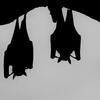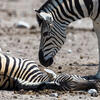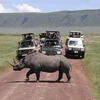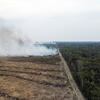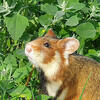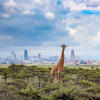You are here
Sandra Lavorel, an ecologist at the peak
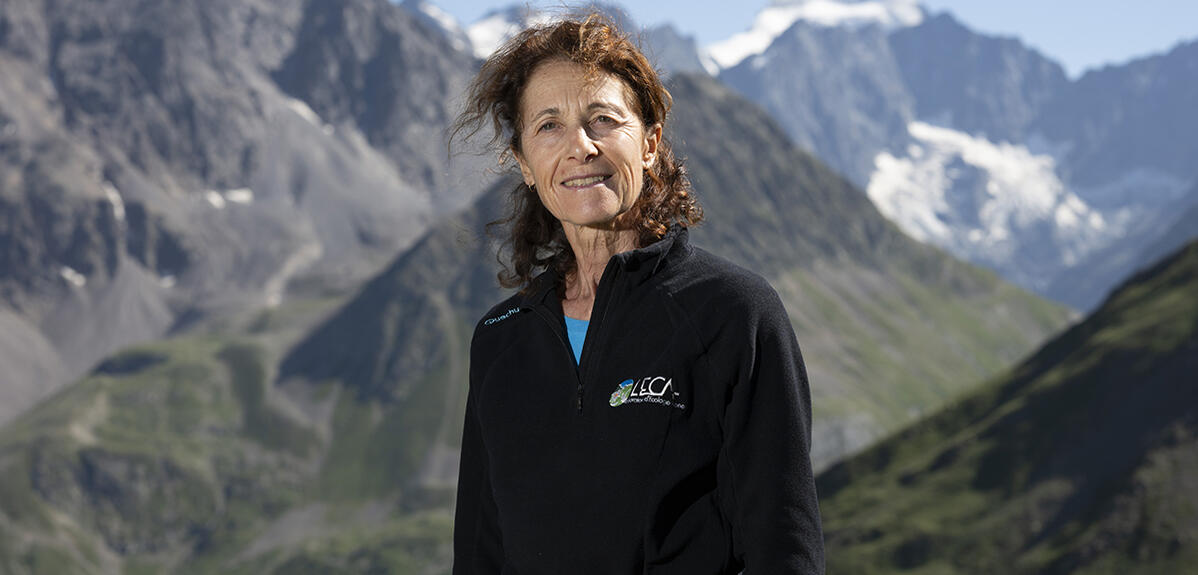
"There’s no way we can solve the current climate crisis if we don’t work closely with people." What immediately stands out about Sandra Lavorel, laureate of the 2023 CNRS Gold Medal, is her love of nature, along with a deep respect for others. A skilled ambassador, she spends a great deal of her time getting people to engage with their natural environment. "She's a pioneer, at least in France and Europe, when it comes to working at the interface between the natural sciences and the humanities and social sciences," says Éric Garnier, at the CEFE research centre in ecology and evolutionary ecology1 in Montpellier (southern France), with whom she used to work. "She's incredibly gifted."
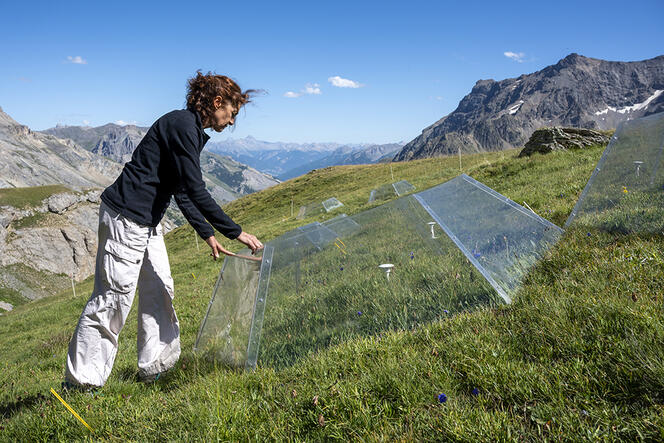


A research professor at Université Grenoble-Alpes, Lavorel specialises in functional ecology, the branch of science that studies the functions of ecosystems and their potential benefits for human societies. "For instance, an ecosystem can not only provide food, fuel, and materials, but also clean up water, ensure crop pollination, regulate the climate by storing carbon, and so on," Lavorel explains. "It also offers cultural benefits. For example, a beautiful landscape such as a meadow in bloom invites contemplation and provides a sense of well-being." Specifically, Lavorel's research focuses on the impact of climate change and land use on the benefits nature offers to humans. Her favourite stomping grounds are the mountains, and in particular the Haute-Romanche valley above Grenoble, in the French Alps, where she models the effects of global warming on alpine meadows.
Her career as an ecologist began in the late 1980s. After passing her baccalaureate with flying colours and taking two years of science preparatory classes, she graduated as an engineer in agronomy2. "I'm delighted to have started my studies with this programme, which introduced me not only to ecology and biology, but also to the social sciences," she says. With this initial hybrid qualification in hand, she went on to complete a PhD in ecology and evolutionary sciences at Université de Montpellier 2. When she defended her doctoral thesis in 1991, functional ecology was only just beginning to emerge as a discipline.
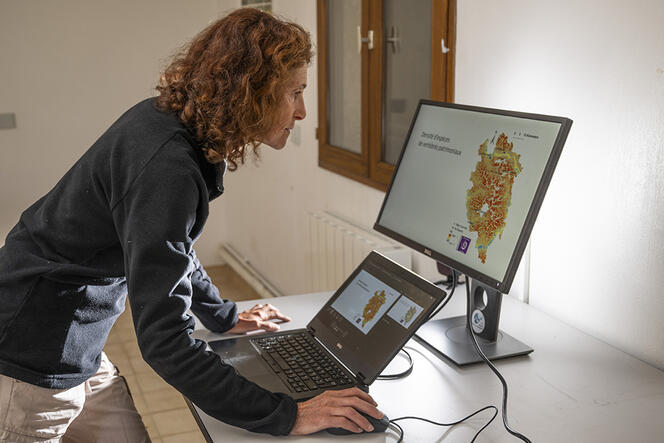


"During my three-year postdoc in Canberra, Australia, I was lucky enough to work with researchers who classified plants by function rather than by identity, with the aim of modelling entire ecosystems and analysing their response to climate change. It was groundbreaking," recalls Lavorel. It inspired her, together with her colleagues, to deploy the functional ecology approach locally in Europe, with a view to monitoring changes in an ecosystem's functions according to factors such as land use, climate change, and the rise of invasive species.
The mountains as a lab
It is no wonder Éric Garnier describes her as having "an exceptional ability to detect and synthesise ideas, trends, and disciplines". She began her pioneering work on Mediterranean ecosystems at the CEFE in 1994, when she returned from the other side of the world to take up her first post at the CNRS. "It was very interesting and formative, but my thing is the mountains. I've known that ever since I went on youth training schemes in the Mercantour and Écrins national parks. That's my playground!" she says, pointing proudly at the picture behind her of the Haute-Romanche valley, where many peaks are not far off 4,000 metres.
"In 2003, when I arrived at the LECA3 in Grenoble, the CNRS provided me with the resources to set up a team, and that's when I was able to get functional ecology off the ground," Lavorel recalls. To determine the evolution of ecosystems and their usefulness to humans, one needs to know exactly what they are. This is why, together with her colleagues, she got down to working on extremely detailed modelling of large areas of the Alps. "This involves mapping the various environments, listing their plants, insects and animals together with their benefits, measuring the storage of nutrients in leaves, the pollination rate, and so on. All this data is then entered into statistical computer models."
Once every detail of the research area has been mapped, all there is to do is vary the parameters. This means accelerating climate change to better measure its impact on ecosystems and the services they provide to our communities. To do so, Lavorel has set up a number of innovative projects. With her colleagues at the LECA, for example, she warms, dries or clears snow from entire plots of her beloved mountains, working at the Lautaret research station, located just below the pass made famous by the Tour de France. "Sandra could have been happy to just be a brilliant ecologist. Instead, she chose to step out of her comfort zone and take an interest in the contributions nature makes to local communities in the Alps," points out Isabelle Arpin, one of her close colleagues at the INRAE. "In particular, she has developed a relationship of trust with stakeholders in the Haute-Romanche valley, and especially with the farmers. She has been working with them for twenty years, which requires a great deal of perseverance, diplomacy and humility."
People, again. In fact, one of Lavorel's major contributions to the discipline is to have succeeded in accurately measuring the impact of land use by local populations on the ecosystems and their benfefits for these communities. In this aspect of her research as in others, she has developed novel methods. "In order to determine how to use the land while preserving ecosystem services, we involve the principal stakeholders, mainly local players such as farmers, but also the departmental authorities, urban planning agencies, and the Ministry responsible for the environment," she explains. "We regularly organise workshops with them, in which everyone expresses their concerns and their wishes. Using board games that we designed, we work together to determine the impact of specific practices: what happens if we fertilise a little less, if we stop mowing, if we plant trees, if we practise extensive rather than intensive agriculture, and so on. These regular exchanges, this work in the field, is vital to my research." And undoubtedly one of the keys to its success.
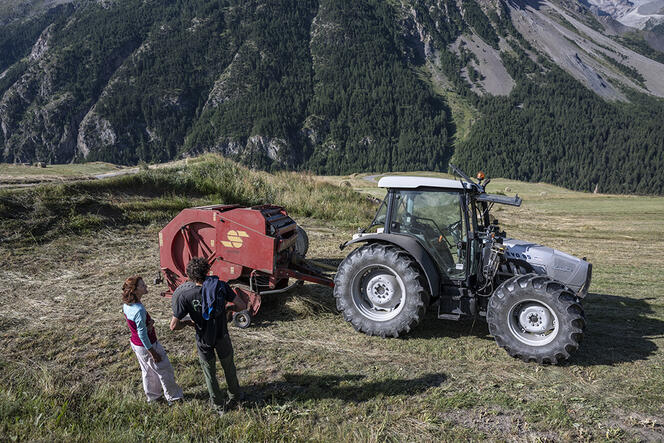


Over the course of her career, Lavorel has published more than 300 articles in leading journals, is one of the most cited authors in her field and, before she was awarded the CNRS Gold Medal, had already received 14 prestigious awards. In short, as Arpin says, "She has played a key role in the development of functional ecology both in France and around the world." So it is hardly surprising that she has been entrusted with managing biodiversity assessments both in France (French Assessment of Ecosystems and Ecosystem Services – EFESE) and internationally. From 2018 to 2022, she sat on the interdisciplinary committee of the Intergovernmental Science-Policy Platform on Biodiversity and Ecosystem Services (IPBES), the equivalent of the IPCC for biodiversity, for which she co-edited the report published in 2021.
"I'm currently involved in drawing up the next IPBES report, to be published in 2024. It no longer focuses purely on observational findings, but rather on the solutions that need to be implemented in order to preserve ecosystems and their countless benefits," she explains. Whether writing expert summaries at the international level, inventing ingenious board games, or modelling the natural world, Lavorel’s work ultimately serves one and the same purpose: that of reconciling humans with their environment.



